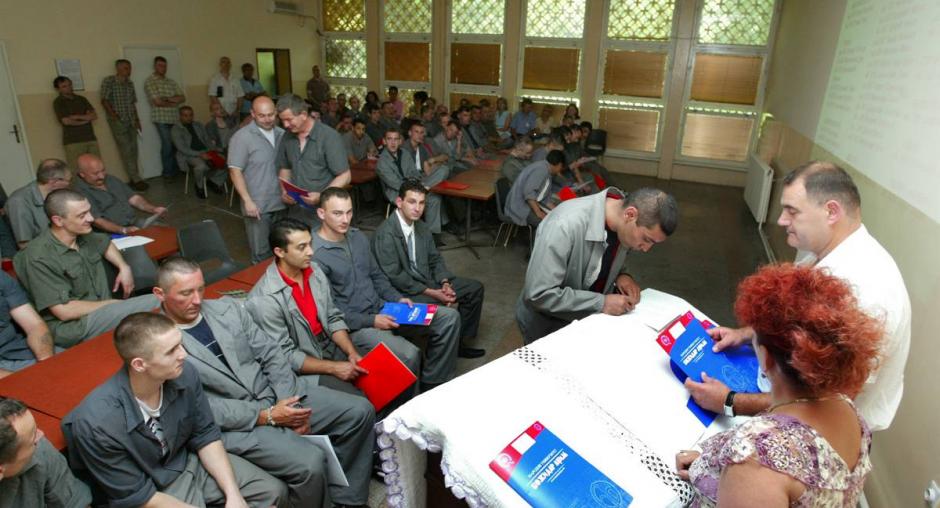OSCE Mission to Serbia reintroduces education into prison system
On 4 July this year, 67 inmates of the Sremska Mitrovica Penal Correctional Facility received diplomas for successfully completing either a vocational training or a primary education programme sponsored by the OSCE Mission to Serbia.
"This piece of paper is not just a sign of individual achievement," says Milan Diklic, an inmate and graduate of the vocational training programme. "It is a symbol and a reminder that someone cares and believes in us and our potential."
More than half of the inmates who participated in the OSCE educational programme, part of its overall prison reform strategy, pursued vocational classes in plumbing, cooking, car and electrical repair and meat butchering. Others attended primary education classes, a pre-requisite for the vocational programme in which they are expected to enrol next year.
Diklic completed the cooking course but, after his release, he aspires to study law. "Even though I am not physically free, my mind and spirit are eager to learn. I am thankful for the opportunity given to us by the OSCE."
Classes began on 15 February. Students in the three-month vocational training course received three to four hours of instruction per week, plus four days of practical training. Students in the primary education programme had four lessons a day, four days a week.
Education as a crime prevention mechanism
For the past year, the OSCE Mission to Serbia has worked closely with the prison administration staff of Sremska Mitrovica, which is one of Serbia's largest prisons with 1,357 inmates, to address growing concern over illiteracy rates.
Education is a crucial element in the process of rehabilitation and social integration for inmates released from prison, but Serbia, faced with a shortage of funds and deteriorating prison school facilities, stopped offering programmes for prisoners in 1991.
According to recent statistics from the Ministry of Justice, more than 18 per cent of Serbian inmates have not completed elementary schooling.
The OSCE pilot project, part of an extra-budgetary activity sponsored by the Canadian International Development Agency, funded the purchase of new furniture, computers, books and other educational supplies. It also paid for instructors and enrolment fees for primary education and vocational classes.
Successful reintegration
"Providing education to inmates is essential for their individual rehabilitation and for developing their potential for successful social reintegration," explains Dusan Ivanic, Head of the Rehabilitation Service in Sremska Mitrovica.
Before the OSCE project, inmates often entered the prison system illiterate and left, years later, still unable to read.
"Inmate rehabilitation programmes, which include education and vocational training, are excellent crime prevention mechanisms because they provide inmates with basic skills such as reading and writing that are needed to get any type of job," says Natasha Novakovic, the Mission's National Legal Officer and an expert on Serbia's prison system.
"Vocational training is especially helpful because it enables prisoners to carry out a specific trade. Without these skills most of them are bound to turn to crime again."
Providing education, creating hope
The Serbian Ministry of Justice and the Mission have also signed a memorandum of understanding to provide future support for the education programme in Sremska Mitrovica.
"It is our hope that the success of the Sremska Mitrovica pilot education programme will inspire the development of similar programmes in other locations as well," says Novakovic.

